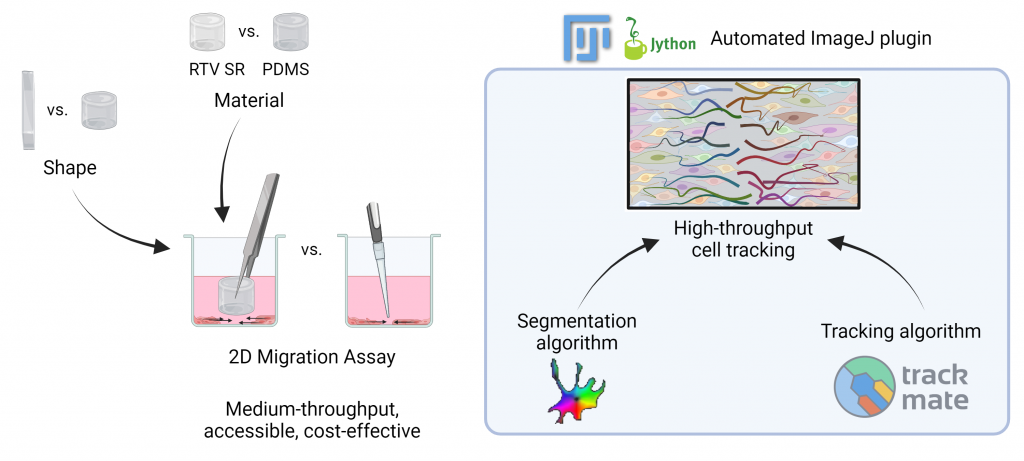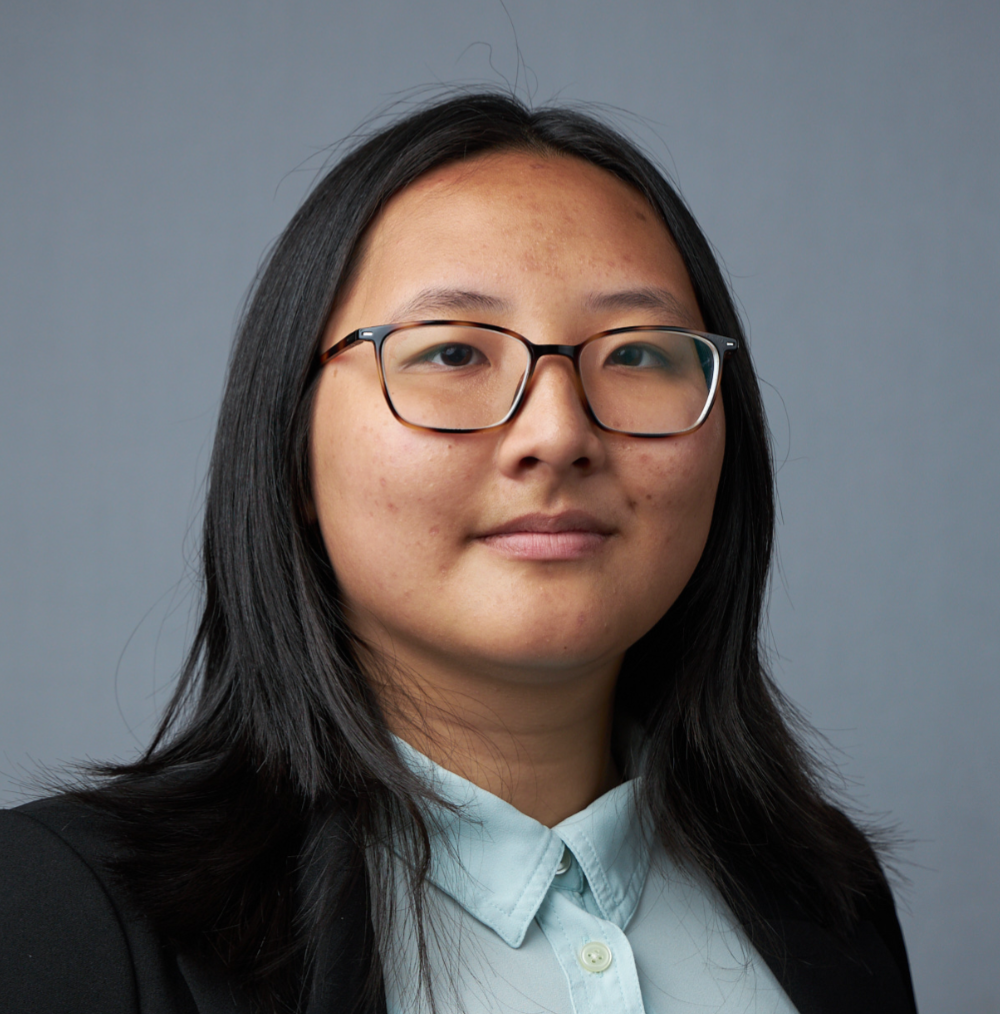Dr. Meghan Ferrall-Fairbanks, alongside alumna Kathleen Trang (first author) and Ph.D. student Adriana Del Pino Herrera, has achieved a significant milestone for the University of Florida’s BEAT Cancer Lab. Their newly published paper, “Development of an Automated Machine Learning-Driven Assay for Robust and Accessible Analysis of Cell Migration,” is featured in GEN Biotechnology.
 This research focuses on improving the accessibility and replicability of cell tracking methods to study cell migration, addressing the current dependency on manual segmentation and tracking, which can be cognitively taxing. The team developed a 2D migration assay and an automated tracking plugin for ImageJ, enhancing the quantification and analysis of single-cell migration. These innovations aim to bridge the gap between labs with varying computational expertise, providing user-friendly tools capable of capturing high-resolution data.
This research focuses on improving the accessibility and replicability of cell tracking methods to study cell migration, addressing the current dependency on manual segmentation and tracking, which can be cognitively taxing. The team developed a 2D migration assay and an automated tracking plugin for ImageJ, enhancing the quantification and analysis of single-cell migration. These innovations aim to bridge the gap between labs with varying computational expertise, providing user-friendly tools capable of capturing high-resolution data.
The automated system not only increases efficiency but also empowers labs to focus on subtle variations in cell behavior, offering deeper insights into wound healing, disease mechanisms, and fundamental biological phenomena. By lowering the barriers to studying migratory dynamics, this work fosters inclusivity and collaboration across multidisciplinary labs, ultimately broadening the scope of research on diverse cell populations.
This research reflects UF’s dedication to enhancing accessibility and promoting impactful scientific contributions, supporting a more inclusive and collaborative research environment.
